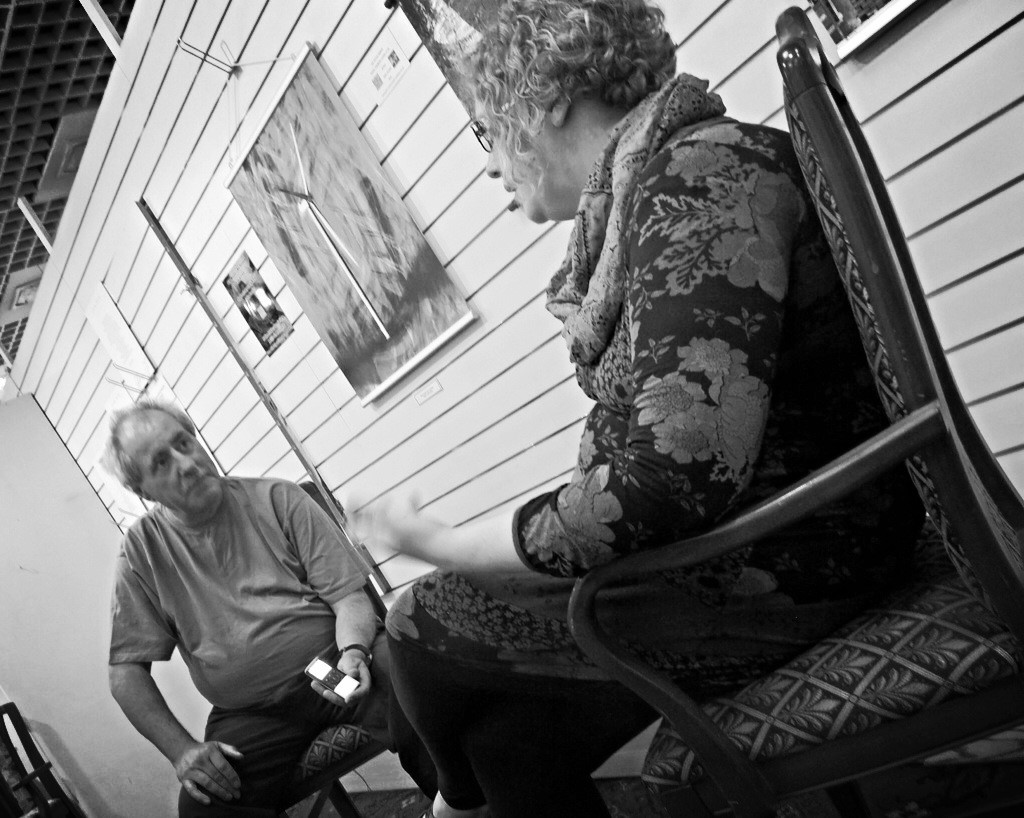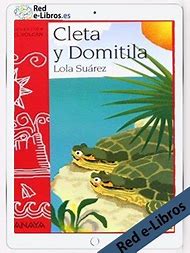WRITE AROUND THE WORLD
WRITE AROUND THE WORLD
By Norman Warwick

We were delighted to have been invited to host a major event for National Poetry Day a few years ago in Bolton, the more so when we turned up to find the opening performer would be Owen Sheers (he was, then, a poet I greatly admired and is now a poet and novelist I greatly admire) and he was charm personified in the wind battered, rain drenched BBC caravan from where our poetry day offerings were to be broadcast. There were barriers and ribbons festooning a deserted town square which various Bolton councillors and Librarians assured us would have been packed with people on a ´normal´ autumn day.

Meanwhile though, rock-like rain drops were hitting the pavement so hard they then leapt up and over the three foot high barriers like long distance steeplechasers. Poor Owen had the dubious privilege of being the first one out of the caravan to stand behind the only thinly- protected microphone stand. He read two or three beautiful poems to a man and a boy and a byke sheltering in a shop entrance fifty yards away, assisted as he did so by a beautiful girl (presumably from his publisher) who turned his pages for him. I looked at Pam,….. and she looked at me,…. and hissed ´don´t even think about it.´ I wasn´t actually sure what I wasn´t supposed to be thinking about but she said it in such a scary tone I didn´t dare think about anything, at all.
Owen and his lovely assistant stepped quickly back into the caravan, soaking wet, and cursing the wind that had turned their brolly inside out, to hand over to us.
Undeterred by wind and rain, we stepped up to the plate, behind the mic and looked out on miles of sweeping rain, puddles becoming lakes, at lightning suddenly revealing the town hall in its true colours, ,….and a man and a boy and a byke sheltering in a shop entrance fifty yards away.
´Good morning´, I said, ´we´re Just Poets and….´ but thunder rolled, lightning lit up the skies like Standard fireworks and the microphone popped like a bomb blast in the Blitz ! I looked up to see a man a boy and a byke racing away in three different directions,…well, you know what I mean.
Performers around the country at this year´s National Poetry Day event, (which will surely take place in some form or another) are far more likely to be able to deliver their work from the comfort of their own arm-chairs, in some sort of podcast, than to have to suffer similar indignities of a live outdoor public performance.
Our sister pages at all across the arts UK recently described National Poetry Day as the annual mass celebration on the first Thursday of October that encourages us all to enjoy, discover and share poetry. As the art-form’s most visible moment, it showcases the ways in which poetry adds value to society. Writers, readers and people of all ages looking for a distraction during lockdown will find a lot to engage with and be inspired by.
This year, National Poetry Day will take place on the 1st October 2020, and the theme is Vision. The general public is being encouraged to get involved with activities nationwide on the day, and to See It Like a Poet.
National Poetry Day generates an explosion of activity nationwide, thousands of amazing events across the UK – in schools, libraries, bookshops and hospitals, on buses, trains and boats – all celebrating poetry’s power to bring people together.
The Day starts conversations, it encourages love of language—and best of all, it is open to absolutely everyone to join in, quietly or noisily in rewarding and enjoyable ways.
Find out more about National Poetry Day’s reach, impact and effect on poetry book sales with a handy leaflet, downloadable at https://nationalpoetryday.co.uk

interviewed by Norman Warwick
of Sidetracks & Detours
Even with October to look forward to, though, UK poet Katie Haigh reminds us that during the month of April for the last several years she has taken on the Napowrimo challenge of creating thirty poems in thirty days. She admits she occasionally uses the website http://www.napowrimo.net/ which posts daily prompts from the day before 1st April for those eager to start. She enjoys picking up the gauntlet, so to speak, of working in new writing styles on new topics even whilst finding new ways to shape her words.
Katie find it fun and a challenge to push beyond her comfort zone and to also enjoy the unity the initiative brings about.
´There’s a sense of community and support on blogs like WordPress and Facebook groups set up to share our work´, she recently told Steve Cooke of all across the arts. ´The beauty of it is that it doesn’t have to be perfect, but although some writers use May to edit any works created, I prefer to try to perfect my piece before I post.´
This year’s Napowrimo has been very different and with our current circumstances and Katie decided to use that as her inspiration. All but one of her poems were based on the Lockdown and current pandemic COVID19.
The one piece that was different was a piece about Jade and Christian and ´the Sign Along with us journey for which we got a golden buzzer.´ This was an initiative started by Jade Kilduff for her profoundly deaf little brother. Katie and her daughter are good friends of the Kilduff Family and joined the Sign Along choir to show support. That ´journey´ she referred to saw Katie and her daughter Ashleigh appear in the choir on Britain´s Got Talent whilst Jade and her brother also appeared on daytime tv and The One Show.
To see Katie´s poems for Napowrimo as well as some of her other work you can visit her blog https://katiehaighash.wordpress.com/ or her Facebook page called Katie’s Words in Dark Corners. We also include below an example of her Napowrimo contribuitions on the following page.
Napowrimo Day 8, Lockdown Day 24
She. Tale of a Nurse
She cries herself to sleep,
The traumas that she’s seen.
Her hands are sore and cracked,
It’s essential that they are clean.
She’s on the front line,
Seeing life and death.
Losing those with lives to live,
Her and her team giving their best.
At home she stays in one room,
To protect her family´s health.
They stay in isolation,
So her down times are by herself.
She’s sacrificing her own needs,
To help strangers every day.
Then some turn on her,
Purposely coughing in her face.
They say it’s just for laughs,
Shouting ‘corona’ as they run away.
She is completely terrified,
Yet emotionless she stays.
She prays for this to end,
For those she loves to be safe and sound.
She feels so exhausted,
She’s working herself into the ground.
Still she wakes up for her shifts,
Dresses in her scrubs.
Drives herself to work,
To do the job that she loves.
© Katie Haigh
Sidetracks & Detours recently received a fascinating press release from the Isla Literaria group here on Lanzarote that had organised a free-to-enter creative writing competition pretty much as soon as lockdown was imposed on the island. I felt that sharing this news from the island as well as that from the UK might give an opportunity to compare and contrast the social and cultural reactions to the virus in the UK and here on The Canaries.
The Lanzarote competition was organised by the Ministry of Education of the Cabildo de Lanzarote together with Isla Literaria, the association of booksellers and editors of Lanzarote. Almost one hundred stories were presented in the two categories, Youth and Adults.
The jury, composed of José Carlos Márquez, Coordinator of Education, Lola Suárez, writer, Mayte Pozo, editor, Rita Corujo, teacher and Myriam Ybot, journalist, has highlighted the excellent quality of the texts presented to this call and has considered it appropriate to award the aforementioned awards.
All winners will be given their corresponding prizes and diplomas when the official mourning decreed by the Government has been completed in tribute to the victims of the pandemic, on a date and place yet to be determined
After their readings the judges awarded a commendation in the Youth category to a writer under the pseudonym of Vendaval Moreno, with his story Vida Tras Los El Focos. (life Behind The Spotlights).

Lola Suarez
Another winner in this category, writing under the pseudonym Interrogante, was Sara Alonso Santana with her story Telling Silences. Judge Lola Suárez announced that ´after the deliberations by the jury, these are the winners of the story contest.´
Of Telling Silences the judge wrote, ´Dear Sara: I have read your account with my soul in vilo, wishing that the Silence Counter would find in me an interlocutor… I have been left wanting you to tell me more, I want to continue reading your writings to re-enjoy your capacity for synthesis, your correct use of language, your handling of the dramatic elements in such short storytelling. I want you to tell me, because only you know, what your character said before they burned him alive. Sara Alonso Santana: keep writing.´
In the category Adults, one finalist was Usoa Ibarra Borra with Thoughts Of A Tile, presented under the pseudonym Sirena Haunted. The first prize, however, was claimed by Ana Lidia Márquez Morales with her story Do We Go Down? This was also presented to the competition under a pseudonym, of Diana Hunter, to which judge José Carlos Márquez addressed these words of admiration:
´I want to convey my congratulations to Diana Hunter because she has created a fresh, cheerful and entertaining text that takes place in an easily recognizable environment and because she has managed to create, with very believable characters, the corporeity necessary for the reader to feel the lockdown.
In the story there is struggle, there is a clear goal to achieve, a plot that becomes entangled as we descend floor by floor and that the author knows how to crown with an ending that perfectly rounds the text. Diana Hunter has managed to create a credible, cohesive environment capable of transporting the reader, along with the characters, to the space in which the action takes place, while she has expertly handled the plot of the story. The characters, very realistic, are clearly defined.
A few words, just a few small strokes, are enough for the reader to clearly visualize the physical and psychological profile of each of them, both the protagonist and the secondary characters, accompanying the reader in the enjoyment of reading.
Therefore, “Do We Go Down?”, deserves my utmost recognition and congratulations for having managed to entertain and remain in the memory of the reader.´
In addition, the jury deemed it appropriate, to grant a credit to the story The Name Of My Walls, presented by Guillermo Taviel de Andrade Nieto, under the pseudonym Cabela.

Myriam Ybot
In the words of another judge, Myriam Ybot, ´The jury decided to grant a credit to the story The Name Of My Walls for the necessity and relevance of reflection: During quarantine the increase in allegations of gender-based violence has skyrocketed, being confined between four walls aggressors and victims.
As the author conveys in a tale full of empathy, sensitivity and good literary work, fear is the worst of the lockups and the loss of freedom of those who feel permanently threatened is the most inhumane of prisons.
The fluid structure of the story opens with an ironic charge of depth: “I have so much experience in seclusion and isolation that I could teach at the university and they would come from remote places just to hear me talk about it.” The work continue with the crude exposure of the conflict: ´My walls were not any walls; my walls had a name. They were called David and just remembering his name makes me tremble still.´
The work ends, though, with a hopeful and optimistic message: ´Today I can put on music and even dance in the room. I can quietly drink a beer while I remember my mother. I’m completely happy today. No one locks me up today.´
In my own role as a creative writing facilitator in the UK I was frequently privileged to sit on similar judging panels for competitions organised by institutions like the BBC, local library authorities or press groups or whatever, and was always left feeling a bit of a fraud. This was not only because I sometimes felt my fellow judges brought far more academic awareness to the table than I, but also because the standard of creative writing by most entrants would invariably have me admitting the paucity of my own writing.
However, as this panel said in their closing commendations, ´Literature has an indisputable role in transmitting values and (these writings are) an example of that in how it serves its role of forcing us to go beyond the skin of what happens around us.
Since receiving that press release we have been almost able to link a creative writing chain around the world. From Manchester to Matagorda and from London to Las Brenas creative writers have sought to create fiction that reflects current dreadful fact but that still somehow has the ability to transport us to a new dawn, so that now, as the locks are unpicked, some will step out with trepidation and some will run, in comedy-caper style, down to the sea to splash in their freedom, but we all emerge with new stories to tell the world and to read the new stories the world has to tell to us.

Eileen Earnshaw
A former UK writing colleague in the UK, Eileen Earnshaw, said recently in an article for my daily blog, Sidetracks & Detours, that the lockdown has forced her to develop a greater proficiency with social media. She hadn´t, until the descent of the virus, ever wanted to do that but now sees her reinforced skill set, albeit one forced upon her, is proving a godsend. Beneath a headline proclaiming that Writers Respond To Lockdown, Eileen praised the BBC Bitesize.com that offers advice and details of everything digital, that has been a great help in enabling her to keep in touch with many fellow Rochdale writers. Being in contact with her colleagues had then led her to marvel at the different ways they have chronicled the isolation of lockdown.
She then included brief snippets from poems produced since the advent of Corona Virus, and Sidetracks & Detours and readers of this page can find them in full on the all across the arts blog page. Amongst the half dozen or so treasures you will find there is a poem by another former colleague of mine, Ray Stearn.

After many years working with children in Rochdale Central Library as librarian, storyteller, educator and facilitator Ray is accepted by the Borough as an authentic Rochdalian despite now residing in Halifax, Yorkshire in his retirement. I worked in a fairly close synergy with Ray before I retired, at more or less the same time, to Lanzarote. We both like a play on words, Ray and I, and would serve them by the punnet full when working with young writing groups, whether we were working under the auspices of the Rochdale Borough Library Service, or my own group of Just Poets or Ray´s facilitation group, called Can O´ Worms.
Ray Stearn first opened a can of worms as a children’s storyteller over 35 years ago when he qualified as a librarian His stories have been heard in libraries, schools, playgroups, nurseries and Children’s Centres ever since.
Ray lives in Yorkshire and works in Lancashire but, with Kent connections, justifiably considers himself fully multi-cultural. Using key-stage appropriate stories and poems from books, original poetry, puppets, drums, story-sticks and songs Ray opens a Can O’ Worms, encouraging children to explore life through stories. Ray also often delivers poetry workshops for adults and likes to focus the writer’s attention on a few mystery items. These are often the same stimuli he applies with children and the results are quite a revelation. Ray is very proud of his recycled drums and especially his invention of the story-stick. “Old rubbish” collectedover many years being turned into serviceable musicalinstruments is similar, Ray believes, to how stories arere-cycled to engage new audiences.
The poem by Ray that Eileen has included in her collection is called The Colour Of Isolation. Eileen brilliantly and accurately describes it as being ´filled with both irony and verbal-slapstick humour.´
For my part, I adore the fact that the poem opens with a line about ´a comb-over of bananas´ that is surely one of literature´s great creative collective nouns. That the fruit lies in a bowl, and that the line is repeated to close the piece sees it serve as a parenthesis that has us wondering whether we perceive colours in different hues in these days of an invisible virus. Ray´s humour sheds light on lockdown days but he never seeks to deny the darkness of our times.

Michael Higgins, like both Eileen and Ray, an occasional contributor to my Sidetracks & Detours blog, has also seen a poem collated into the piece, with his Happiness Is. This a poem that appoints Chaucer as a good read during lockdown days and this, in and of itself is a good thing in that it directs people to high, if occasionally bawdy, art. The joy of the poem, though, is in how Michael leaves no turn un-stoned in his barbed asides about other writers. The poem closes with a beautifully crafted four line piece about what man yearns, and indeed about the nature of yearning in these times.
Some of the poems Eileen reflected on in her article were submitted by people who had attended her on line workshop for the Weaving Words creative writing group. One such poem was produced by Susan Gash, a lady I don´t think I knew when I worked in the area. I don´t remember her name if so, but If I did know her and she remembers me then let me apologise here, in advance. I wish I´d known her, as her piece is what Eileen calls a ´poignant little poem´ about searching for happiness. Actually Susan´s poem is also a wise, if lengthy, aphorism and includes the sage advice that rather than chase happiness all over the place, we should instead stand still so that it can find us ! Good writing will always lead a reader down unexpected Sidetracks and Detours, and this recalled an old football adage that Mr. Proctor, my PE teacher repeated as a mantra more than fifty years ago, advising me I would be better to stand still and wait for the ball to come my way, rather than chase it all over the park and then be too tired to do anything with it should I catch it.
Eileen has included a couple of her own poems on the blog post and these are both looking to nature for inspiration on how to survive the lockdowns. Her work includes some wonderful internal rhymes such as ´the chicks hatched, safe, at last´ in her poem The Easter Gift. Note how those commas at either side of the word ´safe seem to protect it, creating of it a haven. Those commas around safe are effectively a lockdown ! There is more music to her poetry by way of ´the tick tock of the mantel clock´ in her second piece, Silence, which brilliantly, if painfully, echoes our current emptiness and fear.




Leave a Reply
Want to join the discussion?Feel free to contribute!